Great books for freelancers
Good (and relevant) books for freelancers are hard to find. Here are our picks
We have created this shortlist of practical and evidence-based books by established experts that you may find useful as a freelancer in developing your business. We skipped superficial motivational literature and instead chose to include several insightful biographies, as a source of inspiration.
All and all, these books have been trending in our freelance community for quite a while and are generally regarded as a sort of essential reading for freelancers:
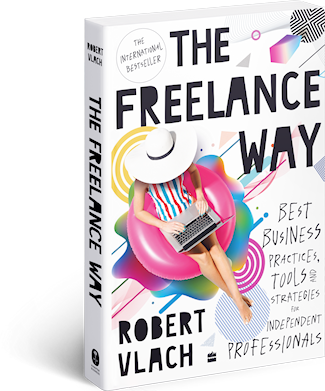
The Freelance Way
Best Business Practices, Tools & Strategies for Freelancers — If you need to read ONE book about freelancing, let it be this one. It presents the best available and fully up-to-date freelance know-how, compiled from hundreds of quality sources, including surveys, the latest market data, advice from world-class experts, as well as real-life experiences and stories from hundreds of professionals in different fields and countries. All this makes the book highly relevant to freelancers worldwide.
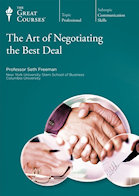
The Art of Negotiating the Best Deal
Negotiating deals is arguably the single most valuable business skill for most freelancers. Yet, it is also one of the most neglected parts of a freelance business. In this excellent audiobook, Freeman goes over the most common strategies and situations, understandably and in detail, without oversimplifications.
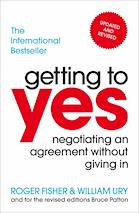
Getting to Yes
Timeless classic and a modern negotiators’ bible. It’s one of the cornerstones of principled negotiation and it’s still among the core literature decades later.
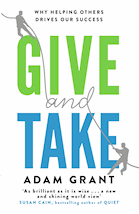
Give and Take
Insightful as well as practical book on how to build a professional reputation by being a “rational giver“ — helping others, while avoiding those who abuse givers. Adam Grant argues strongly that acting reciprocally, as most people do, is fine but far less beneficial for both parties. This is especially important for freelancers who often rely on the recommendations of others and their reputation to get more opportunities and work. (Another lovely little book on similar topics is The Art of Being Kind by Stefan Einhorn.)
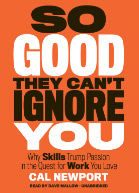
So Good They Can’t Ignore You
So far, the best book on career strategies for experts, both freelancers, and employees as well as students. It debunks the “follow your passion” strategy as ineffective and suggests a skills-based approach instead, along with loads of practical advice. (Another notable book by Cal Newport is Deep Work.)
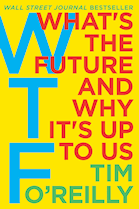
WTF?
In the next five to ten years, innovations in automation, AI, robotics, 3D printing, or, say, cryptocurrencies may significantly influence your field. The career and technological changes that you undertake today are going to affect who you will be as a professional ten years from now. Thus it does make sense to follow developments and read in-depth analyses or book-form summaries like “WTF?”
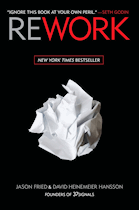

Customs of the World
This is a very practical audiobook on cultural intelligence and different cultures’ unwritten rules. If you are cooperating with partners abroad, this title will make it quite a bit easier for you and prevent ugly misunderstandings. Livermore covers the world’s cultural and geographic regions with an impressive bird’s-eye view. He worked from Geert Hofstede’s respected cultural dimensions theory while supplementing it with other advice based on his research and his own experience in a hundred countries.

Influence
Robert Cialdini’s bestseller on manipulation techniques details the darkest sales and pressure techniques, including effective ways to prevent and defend against them. A remarkable book with a remarkable story. The author infiltrated car dealers, door-to-door salesmen, cold-callers, and other direct-sales masters so he could uncover their tricks that take advantage of natural human weaknesses. (Pre-Suasion is a newer, more scientific book by Cialdini that mainly focuses on factors that quietly predetermine the results of negotiations. Other notable books on building influence, or preventing it in the case of others, are Daniel Pink’s To Sell is Human and Dale Carnegie’s slightly controversial classic How to Win Friends and Influence People.)

Getting Things Done
GTD is a personal productivity method and one of the most influential books on how to organize work and tasks, not only among freelancers. Even though it’s rare to see two freelancers that use it the same way, it serves many professionals as a foundation to build upon. As David Allen points out: “Many people mistake GTD as something that has to have all the suggestions in the book in some format; and most people think of GTD as a ‘system’ instead of a ‘systematic process,’ which it really is.”
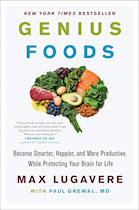
Genius Foods
If you are a creative or knowledge worker, Genius Foods is one of the most useful books out there to support your mental strength and performance. The authors did a superb job collecting the best science-based advice on long-term brain health. The subtitle says it all: Become Smarter, Happier, and More Productive While Protecting Your Brain for Life — this is a true must-read for all life-hackers and hard-working freelancers out there!
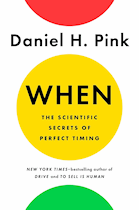
When
Managing one's attention and energy during a day is crucial for us freelancers. Daniel Pinks covers various aspects of this problem in this solid evidence-based summary. (Other great reads related to this topic are Why We Sleep by Matthew Walker, Lifespan by David Sinclair, Daily Rituals by Mason Currey, and John Ratey's Spark about the influence of exercise on the human brain.)
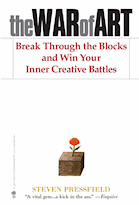
The War of Art
The creative and personal freedom that we gain as freelancers smashes our usual routines. It brings us into an archetypal battle with our laziness or inability. And when it comes to these greater inner obstacles to personal productivity, especially in creative work, there’s hardly a better guide than The War of Art by the renowned writer Steven Pressfield. (If you like this book, make sure to read Turning Pro as a follow-up.)

The Checklist Manifesto
This is probably the smartest book about checklists and improving professional workflows ever written for a broad audience. Don't expect a step-by-step manual, though. Gawande makes a strong case for using checklists and points out general rules for creating them. But since each field has different kinds of workflows to be documented, the actual implementation of his advice will be up to you.
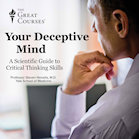
Your Deceptive Mind
This audiobook is perhaps the best introduction to critical thinking out there. Novella makes the point that to think well, one has to know the numerous limitations, biases, and defects of the human mind. (Nobel Prize winner Daniel Kahneman goes over these in detail in his famous Thinking, Fast and Slow. If that is too demanding for you, there’s the wonderfully easy-to-read book on Kahneman and Tversky’s research, The Undoing Project by Michael Lewis. While it’s a biography, he describes many principles in a more understandable way than Kahneman himself.)
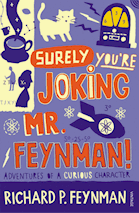
Surely You're Joking, Mr. Feynman!
A superb book about the adventures of one of science's greatest characters, physicist Richard Feynman. While not directly related to freelancing, it is one of the strongest books on the importance of having a curious, inquisitive mind — and what it really means to be rational and scientific. Make no mistake about it; this book is about a mindset that could be useful for any freelancer dealing with data, information, or decision making.
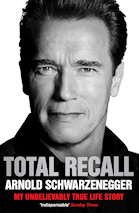
Total Recall
Highly entertaining autobiography by the man who reached the top in three wholly distinct areas of human endeavor: sport, acting, and politics.

Churchill
We all know Winston Churchill as a famous statesman. But did you know that before going into politics, he was a successful freelance writer and publicist? This excellent biography presents Churchill as a human being, rather than a historical figure, with his early „freelance“ period suddenly standing out as quite formative.

Open
Individual sports are full of independent professionals, in other words freelancers. Andre Agassi's sports memoir is outstanding in many aspects, but when it comes to team-building and career ups and downs, it shines like a diamond. This book is easy to relate to, even if you don't know much about tennis. It is about the human struggle for perfection and excellence.
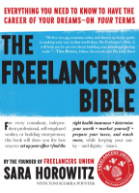
The Freelancer’s Bible
Published in 2010, this is actually one of the best books for freelancers due to a singular reason: Sara is the founder of Freelancers Union, the largest US organization supporting freelancers. Her book is thus less biased and more based on a broader picture than books written by individuals who cover mostly their personal experience with freelancing.
